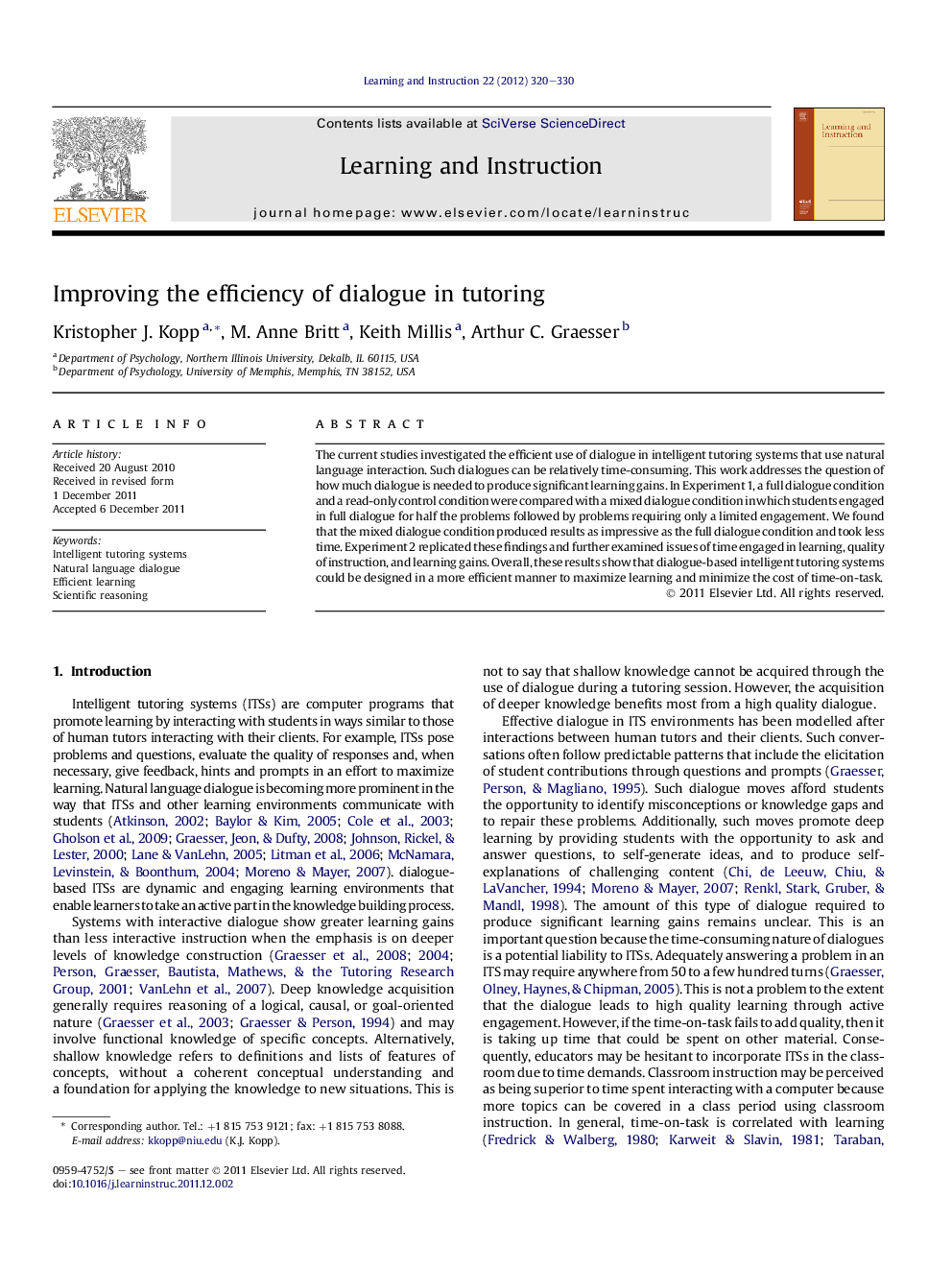| Article ID | Journal | Published Year | Pages | File Type |
|---|---|---|---|---|
| 365702 | Learning and Instruction | 2012 | 11 Pages |
The current studies investigated the efficient use of dialogue in intelligent tutoring systems that use natural language interaction. Such dialogues can be relatively time-consuming. This work addresses the question of how much dialogue is needed to produce significant learning gains. In Experiment 1, a full dialogue condition and a read-only control condition were compared with a mixed dialogue condition in which students engaged in full dialogue for half the problems followed by problems requiring only a limited engagement. We found that the mixed dialogue condition produced results as impressive as the full dialogue condition and took less time. Experiment 2 replicated these findings and further examined issues of time engaged in learning, quality of instruction, and learning gains. Overall, these results show that dialogue-based intelligent tutoring systems could be designed in a more efficient manner to maximize learning and minimize the cost of time-on-task.
►We examined the efficient use of dialogue-based tutoring systems. ►The amount of dialogue-rich problems during a tutoring session was varied. ►Learning and time-on-task was assessed across conditions. ►Tutoring systems could be designed to minimize time without sacrificing learning.
